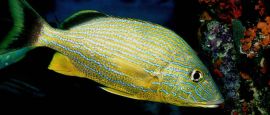Bonaire History, Language and Culture
History of Bonaire
Although discovered by the Spanish explorer Amerigo Vespucci in 1499, Bonaire’s earliest inhabitants were Caquetio Indians – noted for their tall stature – who travelled from Venezuela by canoe about a thousand years ago.
Spanish colonisation, which started in 1526, was a little half-hearted and although they imported domesticated cows, donkeys, goats, horses, pigs and sheep it’s not thought their efforts at farming came to much. From the 1620s the Dutch were regular visitors to the island and abandoned the Spanish and Portuguese prisoners who built the town of Antriol on Bonaire. During the Eighty Years War between Spain and The Netherlands, the Dutch conquered Bonaire and built Fort Oranje in 1639.
The Dutch West Indies Company introduced economic development schemes for which they imported hundreds of slave workers. Even after emancipation free slaves were obliged to do at least dome work for the government, but the abolition of slavery heralded in a long period of economic depression that was only accelerated when the government sold most of the public lands in the 1860s and eventually the vast saltpans, leaving the entire population economically dependent on two private landowners.
During World War 2 Bonaire became a protectorate of Britain and the United States and by 1945 the US Army had built Flamingo Airport, while many German and Austrian citizens were interned on Bonaire.
An indigenous economy began to emerge in the post-war years as the airport was turned over to civilian use and the former internment camp became the island s firs hotel, paving the way for the modern tourism industry.
After the dissolution of the Netherlands Antilles in 2010, Bonaire held a referendum on independence, but although 84 per cent of those who voted did so to become part of The Netherlands, because the turn out was well below the 51 per cent required, the result was declared void. Bonaire is now a ‘special municipality' or public body of The Netherlands but in a referendum in December 2015 65 per cent voted they were not content with Bonaire’s current relationship with The Netherlands.
Did you know?
• With Aruba and Curaçao, Bonaire forms part of a group often referred to as the ABC Islands.
• A giant system of ponds and pools has been created in southern Bonaire to facilitate the production of salt by evaporation. The condensing pools are a natural habitat for brine shrimp on which large flocks of flamingoes and other migratory birds feed.
• Lac Bay in the south-east of the island is popular with surfers.




 You know where
You know where